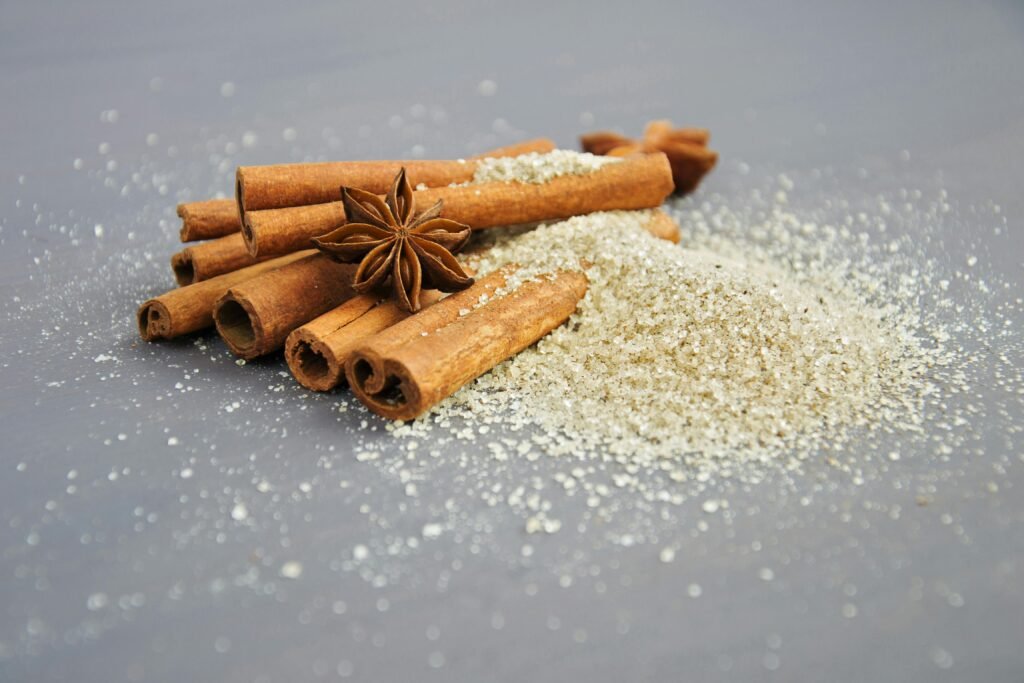Introduction to Rapid Weight Loss
How to Lose 5kg in a Week ,Losing weight quickly can seem like a dream come true, especially if you’re trying to fit into that outfit or prepare for an important event. But can you really lose 5kg in just a week? While it’s possible, rapid weight loss requires discipline and a well-thought-out plan.
Is Losing 5kg in a Week Realistic?
The answer depends on several factors, such as your current weight, lifestyle, and metabolism. Losing 5kg in a week is ambitious and may only be suitable for some. Achieving this weight loss goal requires commitment to strict dietary and exercise changes, with a focus on high-intensity workouts and a well-balanced, calorie-restricted diet.

Why You Should Consult a Doctor First
Before you dive into an intense weight-loss regimen, consult with a healthcare professional. A rapid weight loss goal of 5kg can stress your body, and it’s essential to ensure that your approach is safe.
Key Principles of Rapid Weight Loss
To lose 5kg in a week, you need to understand the fundamentals of weight loss. Here are the core principles to guide your journey.
Sweet deficiency and Its part in Weight Loss
A calorie deficiency is when you consume smaller calories than you burn. This deficiency forces your body to burn stored fat for energy. Aim for a sweet input that’s 500 – 1000 calories below your conservation position to achieve quick weight loss.
Importance of Hydration
Hydration is key to supporting your metabolism and controlling hunger. Drinking enough water throughout the day can prevent overeating and aid in digestion, making it easier to achieve a calorie deficit.

Diet Strategies to Lose 5kg Quickly
Nutrition is the backbone of any weight-loss plan. Here’s how to optimize your diet to shed weight effectively.
Reducing Carbohydrates and Sugar
Carbohydrates, especially simple sugars, can lead to water retention and increase your calorie intake without providing long-lasting energy.

How Carbs Affect Weight Loss
When you reduce carbs, your body uses glycogen (stored carbs) for energy, which leads to rapid water weight loss. Reducing carb intake can help you shed those initial kilos quickly.
Increasing Protein Intake
Protein is essential in any weight-loss plan, especially if you’re trying to lose weight quickly. It helps in building lean muscle, boosts metabolism, and keeps you feeling full for longer.
Protein for Satiety and Muscle Preservation
When you’re eating fewer calories, protein can prevent muscle loss, which helps maintain your metabolic rate. Include protein-rich foods like eggs, chicken, fish, tofu, and legumes in your diet.
Including High-Fiber Foods
Fiber aids in digestion, controls blood sugar levels, and provides a sense of fullness, which can prevent overeating.
Fiber for Digestion and Fullness
Eating fiber-rich foods, like fruits, vegetables, and whole grains, can keep you satisfied while still staying in a caloric deficit.
Effective Workout Routines for Quick Weight Loss
Exercise is critical for burning calories and maintaining a calorie deficit. Incorporate these workouts to maximize fat burn.
High-Intensity Interval Training (HIIT)
HIIT involves short, intense bursts of exercise followed by rest periods. It’s highly effective for burning fat in a short period.
Benefits of HIIT for Fat Burning
HIIT accelerates your metabolism and continues to burn calories long after your workout, making it an efficient way to lose weight quickly.
Strength Training for Lean Muscle
Strength training builds lean muscle, which can enhance your resting metabolism and help you burn more calories throughout the day.
Walking and Cardio for Calorie Burn
Incorporating low-impact cardio, like brisk walking, alongside HIIT and strength training can help you burn additional calories and support your weight-loss goal.

Lifestyle Changes to Support Weight Loss
Small lifestyle adjustments can make a big difference in achieving your weight-loss target.
Managing Stress Levels
High stress can lead to overeating and disrupt your sleep, both of which can hinder weight loss. Practicing relaxation techniques, such as deep breathing, can keep stress levels in check.
Quality Sleep and Its Impact on Weight
Aiming for 7-8 hours of sleep each night can improve your metabolism, reduce cravings, and help you feel more energized for workouts.

Tips for Staying Motivated During the Week
Staying focused on your goal is essential. Here are some strategies to keep you motivated.
Setting Realistic Daily Goals
Setting small, achievable goals can give you a sense of accomplishment and keep you focused throughout the week.
Tracking Progress with a Journal or App
Keeping a record of your meals, exercise, and weight changes can help you stay on track and make adjustments as needed.
Potential Risks of Losing Weight Too Quickly
Rapid weight loss can cause fatigue, nutritional deficiencies, and muscle loss. Be mindful of how your body feels, and avoid pushing yourself too hard.
Healthy Alternatives to Crash Diets
If losing 5kg in a week feels overwhelming, consider adopting a slower, more sustainable weight-loss approach. Aim for a gradual caloric deficit, balanced nutrition, and regular exercise.
Conclusion: Can You Sustain Rapid Weight Loss?
Losing 5kg in a week is achievable but challenging. While it might jumpstart your journey, long-term weight management requires sustainable habits. Focus on balanced nutrition, consistent workouts, and a healthy lifestyle to maintain your results.
FAQs
1. How can I maintain my weight after losing 5kg?
- To maintain your weight, continue with a balanced diet, regular exercise, and adequate hydration. Avoid reverting to old eating habits.
2. Is it safe to lose weight this quickly?
- Rapid weight loss can be safe with the right approach but should be monitored to avoid nutrient deficiencies or muscle loss.
3. What should I eat to lose 5kg in a week?
- Focus on protein-rich, fiber-dense foods, reduce carbs and sugar, and increase water intake.
4. Can I lose 5kg in a week without exercise?
- While possible, exercise is highly recommended to maximize calorie burn and prevent muscle loss.
5. How important is sleep in weight loss?
- Sleep is crucial for metabolism regulation, reducing cravings, and supporting recovery, making it a key component of any weight-loss plan.
1. How can I maintain my weight after losing 5kg?
- To maintain your weight, continue with a balanced diet, regular exercise, and adequate hydration. Avoid reverting to old eating habits.
2. Is it safe to lose weight this quickly?
Rapid weight loss can be safe with the right approach but should be monitored to avoid nutrient deficiencies or muscle loss.
3. What should I eat to lose 5kg in a week?
Focus on protein-rich, fiber-dense foods, reduce carbs and sugar, and increase water intake.
4. Can I lose 5kg in a week without exercise?
While possible, exercise is highly recommended to maximize calorie burn and prevent muscle loss.
5. How important is sleep in weight loss?
Sleep is crucial for metabolism regulation, reducing cravings, and supporting recovery, making it a key component of any weight-loss plan.
6. What types of exercise are best for losing weight quickly?
High-intensity interval training (HIIT), strength training, and steady-state cardio are excellent choices for rapid weight loss.
7. How much water should I drink while trying to lose weight?
Aim for at least 2-3 liters of water daily, adjusting based on your activity level and climate.
8. Are there any specific diets that help lose weight quickly?
Diets like the ketogenic diet or intermittent fasting can promote quick weight loss, but they should be followed under professional guidance.
9. What are the signs of losing weight too fast?
Signs include fatigue, dizziness, hair loss, constant hunger, and irritability.
10. How can I resist cravings while on a weight loss plan?
Plan meals, stay hydrated, eat high-fiber and high-protein foods, and practice mindful eating to manage cravings.
11. Is it normal to regain weight after losing it quickly?
Yes, it’s common to regain weight if the lost weight was primarily water or if old habits are resumed. Sustainable changes are crucial for long-term success.
12. Can stress affect weight loss efforts?
Absolutely! High stress can lead to emotional eating and disrupt sleep, both of which can hinder weight loss.
13. Should I take supplements while trying to lose weight?
Consult with a healthcare provider before starting any supplements. A balanced diet usually provides all necessary nutrients.
14. How does metabolism affect weight loss?
A faster metabolism burns more calories, while a slower metabolism may make it harder to lose weight. Factors like age, genetics, and muscle mass play significant roles.
15. Can I lose weight if I have a slow metabolism?
Yes, though it may be more challenging. Focusing on strength training and a calorie deficit can help stimulate metabolism.
16. How often should I weigh myself during a weight loss journey?
Weigh yourself once a week to track progress without becoming overly focused on daily fluctuations.
17. Are there any foods I should completely avoid while losing weight?
Try to limit highly processed foods, sugary snacks, and beverages, as they are often high in calories and low in nutrients.
18. Can I eat snacks while trying to lose weight?
Yes, healthy snacks like fruits, nuts, and yogurt can help maintain energy levels and curb hunger.
19. What should I do if I hit a weight loss plateau?
Change up your routine by altering your diet or exercise plan, and consider consulting a professional for personalized advice.
20. How can I keep myself motivated during my weight loss journey?
Set small, achievable goals, track your progress, find a workout buddy, and celebrate your successes to stay motivated.


